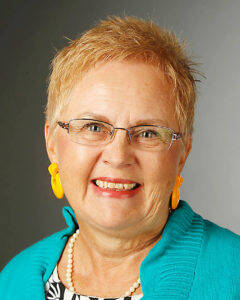Eugenics is a term first used in 1883 by Francis Galton, a British statistician (and cousin of Charles Darwin). Galton defined eugenics as “the study of agencies under social control that may improve or impair the racial qualities of future generations either physically or mentally.” Like most people who have only partial understanding of complex scientific concepts, Galton took his incomplete knowledge of natural selection and used it to make errant conclusions on race. Galton’s ideas were not only wrong, but morally corrupt.
Galton’s ideas were appropriated by those who trade in xenophobia, anti-Semitism, misogyny and racism. These people, who probably couldn’t pass a ninth-grade biology exam, decided that Charles Darwin and Gregor Mendel had given them the ammunition they needed to behave in the disgusting ways that come naturally to the angry, fearful and insecure. People were divined to belong to “superior” or “inferior” groups. Your presence in one group or another was pre-destined and irrevocable.
By the 1920s eugenics had become a global movement. Its popularity was the result of that dark intersection of ignorance and insecurity. Belief in natural superiority also removed the onus of humanitarian action on the part of society. Suddenly ignorance is not the result of poor schooling, which can be improved, you are just “born that way.” The presence of the brutally poor amid the rich is not a sign of inequitable division of opportunities, the poor are just “born that way.” If you believe in eugenics nothing is your fault — even when you know it is.
The ease and self-aggrandizement of this thinking shows itself in the number of famous people who bought into eugenics. Theodore Roosevelt, Helen Keller, Margaret Sanger, Francis Crick, Alexander Graham Bell, Winston Churchill and George Bernard Shaw all believed the lie. This does not mean that these people did not do good in this world and are not worthy humans. But it does illustrate that all of us lead lives that are measured on a balance scale. None of us is perfect. We make mistakes. We follow our reptilian brain when we should follow higher laws. We give in to fear instead of logic.
Some people welcome hate. They choose to give in to their basest instincts. Adolf Hitler accepted eugenics as a gift. It fed his need for self-affirmation; it covered over his failed and petty life; it justified his anger. Hitler’s balance scale tips massively toward the worst in mankind. Unfortunately, his anti-Semitic, eugenic-fueled, master race obsession was supported by what he saw in the United States. Our racism, our anti-Semitism, our laws and attitudes fed Hitler’s mania, which then metastasized into the Holocaust.
Documentarian Ken Burns has produced and presented a program on the Holocaust and its manifestations in pre-World War II America. Like all of Burns’ work, this is a magnificent piece of research, told with both heart and intelligence. Unfortunately, the documentary has met with occasional pushback from those who only want to see the good in America and never the bad. These sunshine patriots do not see that their refusal to admit to America’s mistakes weakens their claim to love their country. Do they not see that admitting to error and knowing that the darkness did not overcome us makes us even more laudable?
To say that casting light on the ugliness of some Americans and some American policies is somehow anti-American is like saying that you cannot love your spouse unless they are perfect in all things. Perhaps, deep in their hearts, people who require perfection fear that they cannot be loved if they hold any imperfection. Such thinking shows a lack of belief in the grace of God. We all need forgiveness. We must all welcome the truth, celebrate our better angels and be ever alert to evil in our midst.
When you keep the faith, it is good to heed the words of Robert Browning: “Man’s reach must exceed his grasp or what’s a Heaven for.”
Louise Butler is a retired educator and published author who lives in Edinburg. She writes for The Monitor’s Board of Contributors.





